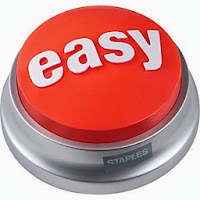Start the year off right with high expectations for your English Language Learners! Some students learn to avoid answering difficult questions by reminding teachers of their limited English skills. "I don't know" or "I can't" may become a common refrain! Here are some ideas to help shift students' mindsets from knowing the right answer to putting in the effort to figure it out.
1.) Talk about the brain as a muscle: the more you work it out, the bigger and stronger it gets! My elementary students always love it when I comment on how large their heads are getting…to contain the brains that are growing so quickly inside! It's become a real motivator for my students to think hard and work hard. They often ask me if I can see a difference in the size of their heads after working diligently on a difficult project.
3.) Make this your classroom mantra: It's okay not to know, but it's not okay not to try. Students should be so familiar with this concept that they encourage each other to try without your prompting. Post it in your room and refer to it constantly!
The willingness to take risks is so important in language acquisition. The sooner we can create comfortable classroom communities coupled with high expectations for participation, the faster our students will begin mastering the English language.



No comments:
Post a Comment